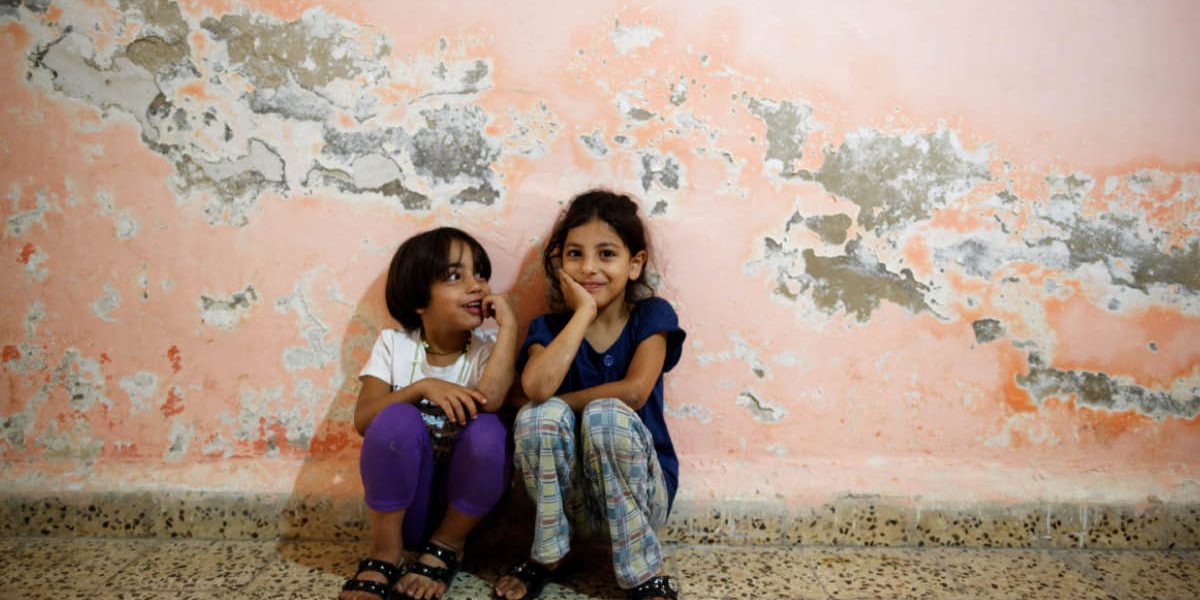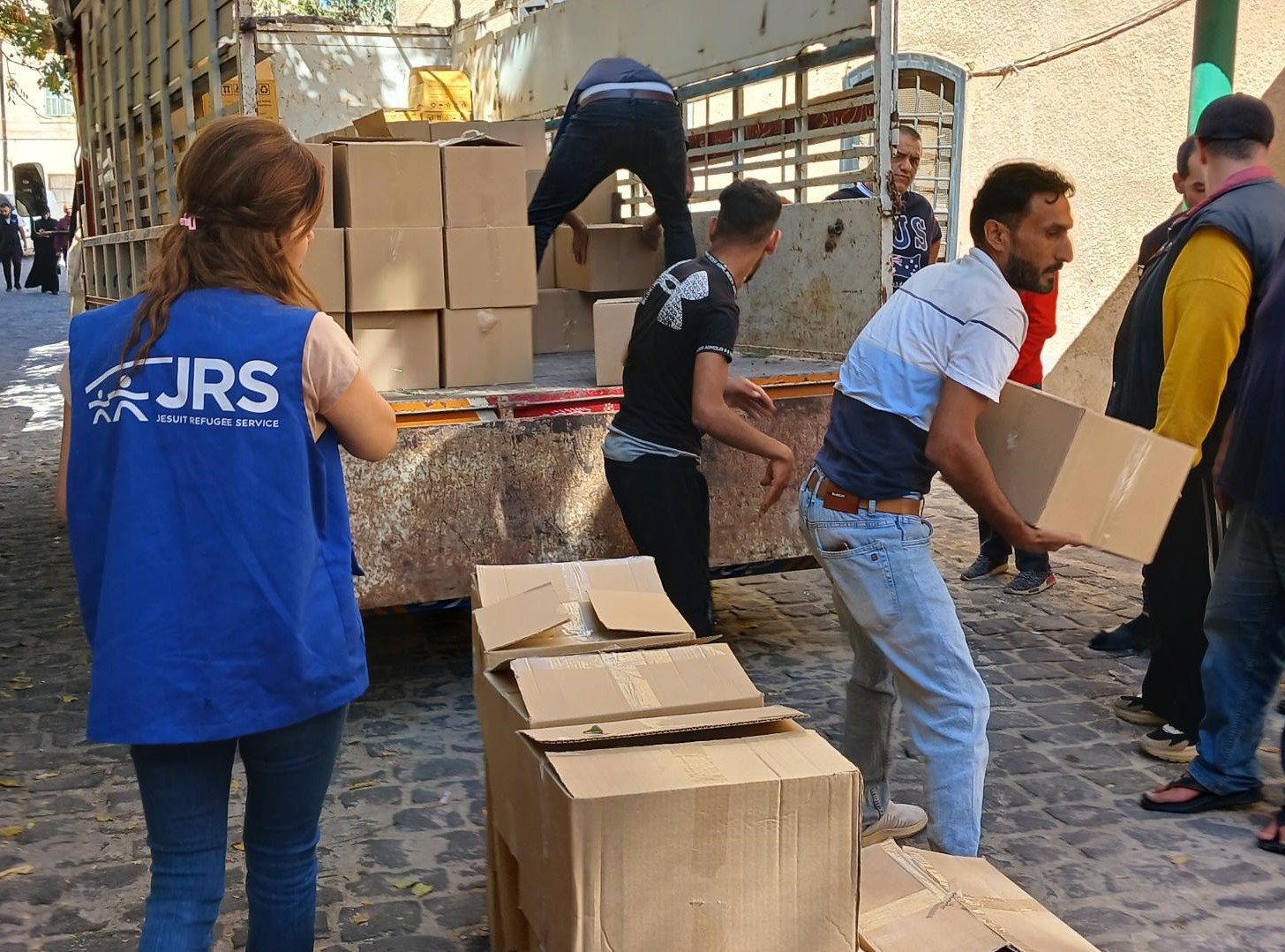
With schools around the world closed, educators everywhere are looking to find a way to teach students, even at a distance. Education is a core activity of JRS, and in the midst of the current crisis, we are finding unique ways to ensure that displaced children have the opportunity to learn and thrive. Access to internet, technology, or even electricity is limited for many displaced children. However, JRS is using the tools it has to educate children when and where we can.
In Malawi …
JRS educates thousands of refugees at the Dzaleka Refugee Camp, the majority of whom have fled from violence in the Democratic Republic of Congo. Still committed to the wellbeing and education of the almost 5,000 students we serve from preschool to secondary school, JRS is still providing meals for these students. JRS is also using the community radio for the camp to continue primary school lessons. So far, the lessons have gone well and the response from students has been positive.
In Central African Republic …
JRS has received funding from Education Cannot Wait in Central African Republic (CAR) to adjust our activities to ensure displaced children will have access to education. JRS is training parents and providing them with the tools to continue school at home, providing play and education kits to help kids learn, and doing community radio broadcasts where teachers will provide live lessons. In addition, the team will start to ensure that curricula will support the return of children and manage any gaps in their education during this time.
In Lebanon …
With close to 1 million Syrians claiming asylum in Lebanon, the country hosts the 4th largest refugee population in the world. JRS educates thousands of these refugees from pre-primary to post-secondary. JRS has had to adjust and is now providing short, one-minute lessons followed by an exercise that can be done at home via WhatsApp for children enrolled in our schools.
In Myanmar …
JRS provides education to some of the more than 400,000 internally displaced people in Myanmar. JRS teams are now using the relationships with the communities of internally displaced and host village leaders, to share information about COVID-19, distributing flyers and making announcements over loudspeakers.
JRS will continue to look for ways to educate students and to advocate for their right to education. JRS recently signed on to a statement, with other Nongovernmental Organizations who provide educational services to children in crisis and conflict, calling for increased support for education as part of COVID-19 Response. We will continue to call for access to education as we look beyond COVID-19 and to recovery.

